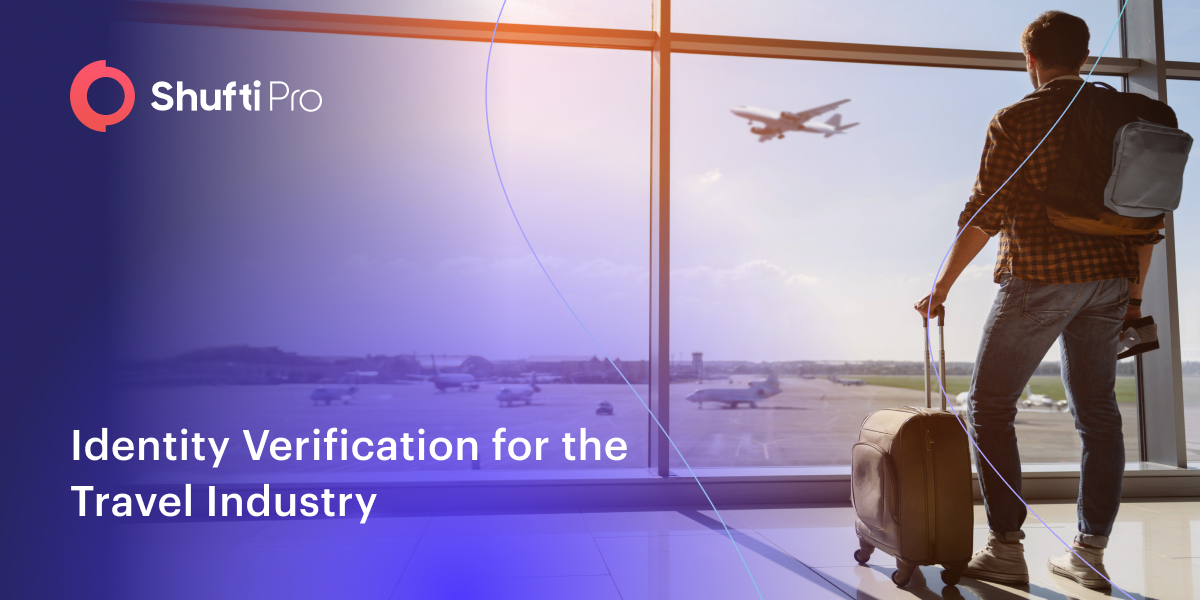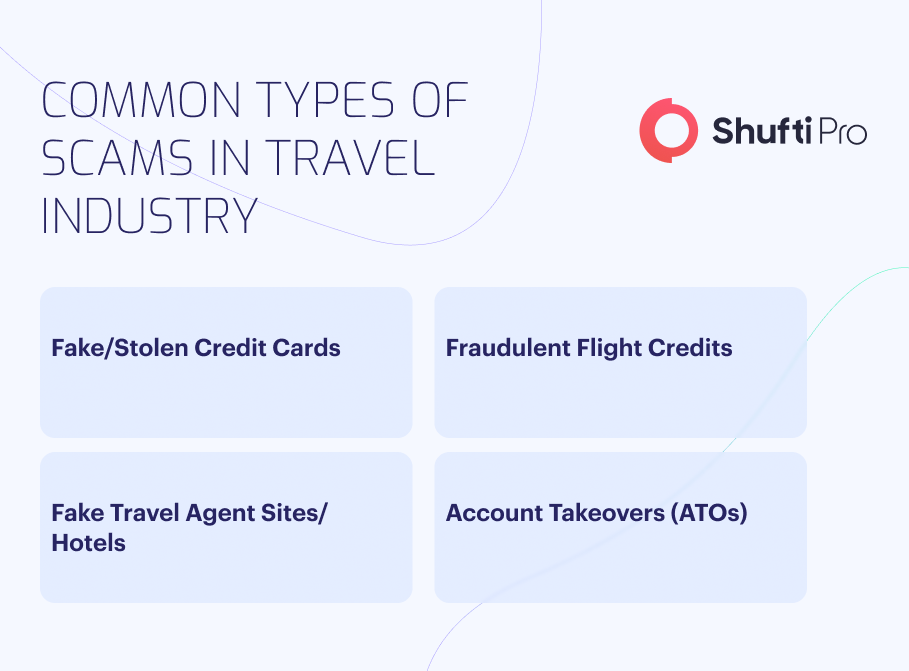6 Ways Identity Verification Will Unlock Digital Transformation in Airlines

Airlines were particularly negatively impacted by the Covid-19 pandemic, and the situation was further exacerbated by the rise in fraud targeting the industry. Payment fraud costs the air transport sector $858 million annually, of which $639 million were covered by airlines and the remaining amount by other businesses within the travel industry. This is where online identity verification comes to the rescue, securing the boarding process and helping airlines get back to the post covid world and embrace the digital age.
Prevalent Scams in the Travel Industry
Not only does payment fraud cost the travel industry immensely large sums of money, but there are other prevalent scams that hit the sector equally as hard. Here’s a quick overview of those:

Fake/Stolen Credit Cards
Credit card fraud is one of the most common scams in the travel sector, from 287,889 debit card fraud cases in the first three quarters of 2021 to 338,684 in 2022, the US has witnessed a rise in fake/stolen credit cards. Cybercriminals often sell stolen credit card credentials for as little as $14 – an absurdly small amount that has the potential to wreak havoc on the lives of fraud victims.
Fraudulent Flight Credits
Airlines promote flight credits to attract more customers and such promotional schemes are an attractive means of exploitation for scammers. This is done by booking flights with stolen credentials and then cancelling them to receive the flight credits; scammers often resell the ticket and purchase legitimate ones to be sold later.
Fake Travel Agent Sites/Hotels
As a part of the triangulation fraud scheme, bookings made through a fake travel agent site gives scammers the opportunity to extort money from victims directly; once obtaining the victim’s information, criminals can use their details to make purchases. When the victims turn up at the airport to have a flight, they will be refused with no access to refunds as that fake travel agency is likely to be dissolved.
Account Takeovers (ATOs)
ATOs are one of the ever-present issues in the e-commerce space. In an account takeover, the scammer gains access to the individual’s account information through data breaches or other methods and then makes illegitimate transactions posing as a genuine customer. Australia topped the list of account takeovers with 86% of e-merchants reporting this attack in 2021, followed by Mexico with 78% and Canada with 74%.
How is ID Verification Helping Airlines with Digital Transformation?
Digital transformation has become essential for all successful businesses, especially in the accommodation and travel sectors.
Here’s how online identity verification is facilitating airlines with digital transformation:
1. Self Check-in
Many airlines allow passengers to perform a self check-in at a web-connected booth or using the airline’s mobile application. Self check-in helps passengers verify their identities and documents automatically and remotely, completely eradicating the lengthy and frustrating check-in lines.
2. Faster Mobile Check-in
Mobile check-in is becoming the new norm for many airlines. However, checking in via a small phone screen is tedious and frustrating, especially when there is a pile of forms with lots of data to enter. This is where identity verification comes to the rescue, cutting mobile check-in time from two minutes to twenty seconds whilst booking a flight.
3. Secure Boarding
Latest passports now include a Near Field Communication (NFC) chip whose content can be read by the ID verification application. As passengers must scan their identity as a security measure whilst boarding flights, identity verification apps on their smartphones can easily scan the NFC chip and confirm their identity without requiring any security personnel to do this task.
4. Protect Online Ticket Purchases
Hackers usually purchase airline tickets either by impersonating clients based on data bought on the dark web or using stolen credentials. In this case, digital identity verification helps curb online scams.
5. Shield Frequent Flyer Programs
Hackers often attempt to take control of an authorised frequent flyer account in order to steal the account owner’s miles or points. They aim to use the stolen miles to buy goods/services from program partners. Digital identity verification promises to be a strong fraud deterrent tool for many cybercriminals who prefer to hide their similarity with the airline they are looking to trick.
6. Improve Online Customer Experience
Balancing scam prevention with the customer experience is essential to optimise the conversion rate and avoid drop-offs. Airlines can use digital ID verification services to streamline transactions, scanning government-issued ID cards and automatically extracting the details to fill online forms. This results in a positive customer experience whether they are booking a flight or enrolling themselves in a frequent flyer program.
Where Does Shufti Step in?
Airlines traffic is predicted to grow dramatically as the era of the pandemic and exercising extra caution has come to a close. The digital shift is one of the fundamental pillars that will nurture this growth, and online identity verification can facilitate airlines to get back into the business and embrace the modern age. This is where Shufti fits in the puzzle.
Shufti offers identity verification services built on top of thousands of AI models and is globally trusted to verify identities with an accuracy rate of more than 99%. Available in 230+ countries and territories and supporting 150+ languages, Shufti’s identity verification services are the go-to option for all those businesses struggling to keep scammers at bay.
Still, confused about how identity verification services secure businesses in the digital age?

 Explore Now
Explore Now













